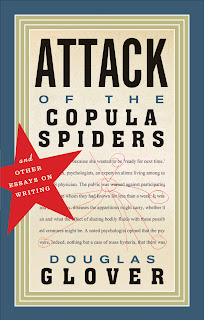After a range of delays, CNQ 84 has finally hit news-stands and mailboxes across the country. And last Saturday the issue came in for some early love from James Adams over at the Globe & Mail:
I'd but the latest CNQ just for its cover, a fabulous gate-fold of more than a dozen Canadian superheroes, conceived and drawn by the inimitable Seth. All hail the King of Kanuck Kartoonists! As ever, though, with CNQ, there's plenty of interesting stuff inside.
And is there ever! Adams highlights K.D. Miller's exceptional Growing Into Alice, Alex Good's look at Douglas Coupland and Aaron Gibreath's On Discovering CanLit, but he could just as well have highlighted Phil Marchand's Faith and Literature, or Patricia Robertson's Against Domesticated Literature, or Brian Busby's continuing Dusty Bookcase look at Basil King, or Devon Code on Alvin Shcwartz, or the first of a new column by David Mason called Secrets of the Book trade, or our own Tara (no stranger to Thirsty readers) Murphy's look at the 2011 Griffin Prize, or the North Wing take on Robertson Davies's Fifth Business, or Alex Boyd's poems, or Shaena Lambert's story Clams, or.... and I haven't even made it to the reviews yet!
And what James Adams could not tell you about in his Globe column is this issue's collectible, as it is not available on the news-stand. But you, dear Thirsty reader, could get it for free with your paid subscription to the journal. This issue's collectible is a hand-bound chapbook of the title fable from Mike Barnes's forthcoming The Reasonable Ogre. You'll be hearing a lot more about this book in the coming weeks and months, but this story will hopefully whet your appetite for more. It's a lovely little production (though our attempt to produce the cover letterpress on the old platen press in the garage failed miserably. Give me time, give me time.)
The website has been updated with some new content from the current issue for readers to test drive. And there are more plans afoot there, as well, that should help bring CNQ well into the ... err.... 20th century. But all of that will keep for a time and for another post.


















